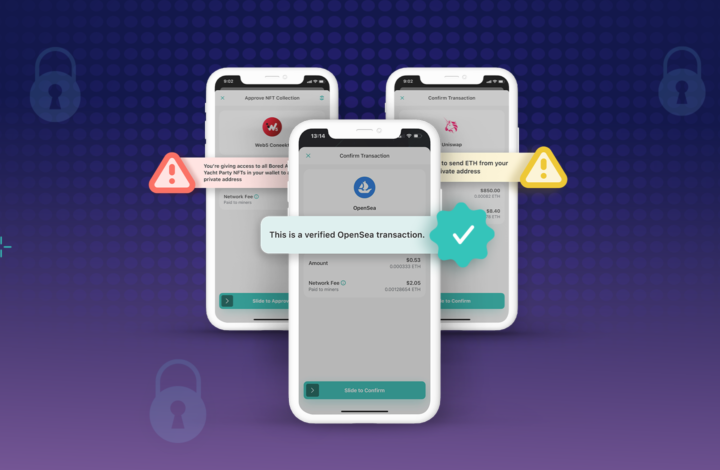
ZenGo is introducing a Web3 firewall: A new paradigm for safe and secure web3 transactions. In 2022 alone nearly $2 billion of NFTs and cryptoassets were stolen in malicious hacks affecting even hardware wallets. ZenGo’s Web3 firewall, ClearSign, informs, alerts, and protects ZenGo users against approving the most sensitive and vulnerable Web3 attacks. Combined with ZenGo’s MPC security architecture that removes private key vulnerabilities, ZenGo continues to innovate as the most secure crypto wallet in Web3.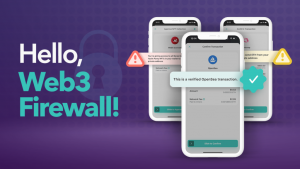
A new paradigm in Web3 Security: ClearSign Firewall
Web3 feels like a highway without stoplights. Transacting in Defi and NFTs feels like being blind in a risky road with likely accidents and wallets make no effort to properly inform you and protect you about those risks. That can no longer be the case.
ZenGo’s ClearSign technology classifies sensitive on-chain transactions a user makes into 3 risk levels, based on transaction sensitivity, levels of permission granted to external systems, and known scams. Just like a stoplight, with 3 levels of safety.
- Green: This interaction is with a verified Dapp and/or known smart contract.
- Yellow: This interaction is context-dependent but generally reflects uncommon behavior: Stay alert and confirm that intent is aligned with expected results.
- Red: ClearSign has detected highly unusual behavior and immediate attention is required. Most of the most sensitive red transactions require a double-confirmation.
Green Alerts: Verified Dapps
ZenGo is integrating leading Web3 Dapps and known smart contracts to confirm when you are connecting to original contracts, and not fake or phishing websites that try and confuse you into giving away your assets. Look for the green checkmark during the signing process.
Verified smart contracts: ZenGo has incorporated verified smart contracts on dapps like OpenSea and UniSwap to provide the clarity and assurance that you are interacting with the legitimate dapps’ smart contracts.*
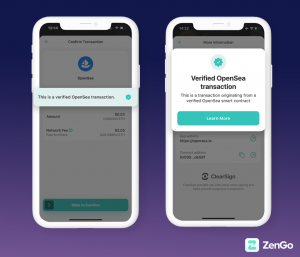
Signatures: Sometimes a Web3 dapp will request you to “sign” something. These types of actions are context-dependent: Sometimes they are harmless, and other times they have been used to steal assets from users.
This can be a stressful moment for many. WHAT are they asking, and how can you be sure that the request you are approving is a benign signing request – and not a more nefarious attempt to gain access to assets in your wallet?
- Do you intend to simply sign and authenticate a general message? ZenGo has verified Dapp signing requests from Dune, CollabLand, and others as benign – and will be adding additional dapps in the future.
- To add your Dapp to the waitlist, contact us: partner@zengo.com.
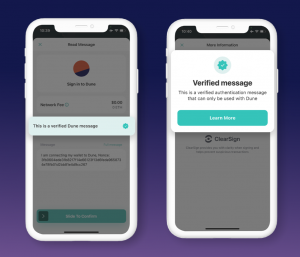
Yellow Alerts: Suspicious approvals & Uncommon behaviors
Some transactions are potentially suspicious, others are absolutely fine: Many times it depends on the context of the transaction and your intention. Millions of dollars have been stolen in transactions because it was unclear to the user what they were approving. ClearSign brings a new level of transparency and clarity to these types of transactions:
- Do you intend to send or transfer your crypto or NFTs to a private address, when you thought you were actually engaging with a Web3 dapp smart contract?
If the answer is yes – great: Go ahead. But if the answer is NO: Then this ClearSign alert might just save you from losing millions of dollars 💪
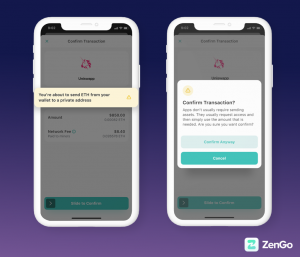
Red Alerts: Warnings against giving access to your wallet
One of the most harmful security hacks is when a user grants a malicious actor access to their assets (tokens or NFTs). This happened in countless phishing scams, including the phishing scam that resulted in Seth Green losing his Bored Ape.
- Do you intend to grant access to your crypto wallet? ClearSign is constantly monitoring security at the smart contract level – if a Dapp is hacked and suggests you grant wallet access to a private address (instead of a smart contract), ClearSign will alert you before you make a mistake.
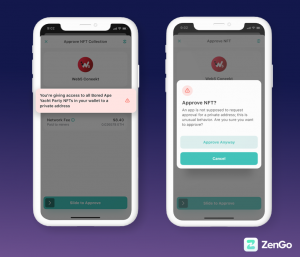
MPC = Ultimate Wallet Security: Why ZenGo is the most secure crypto wallet in Web3
Over $100 billion dollars of bitcoin has been lost or stolen in the last decade because of poor private key and seed phrase management. Are your assets safe? Recoverable if your phone is lost or stolen?
Ultimately, all traditional crypto wallets have the SAME vulnerability: Private keys, which represent a single point of failure. From browser-based wallets like Metamask to hardware wallets like Ledger, every traditional crypto wallet relies on the same vulnerable security architecture.
ZenGo is different. ZenGo’s baseline security architecture leverages MPC instead of private keys, meaning your crypto and NFTs can’t get lost or stolen when seed phrases are exposed: Because your wallet does not have a seed phrase to get exposed! Learn more about ZenGo and MPC here, and realize why your ZenGo wallet offers the ultimate in Web3 simplicity and security.
A note to App developers:
No integration required on your end; ClearSign is deployed by ZenGo and can be fully-integrated with virtually no development support by the Dapp.
ZenGo is continuing to integrate verified dapps. To add your Dapp to the waitlist, contact us: partner@zengo.com.
*ClearSign Safety Disclosure: ClearSign is not a replacement for common security practices, including hacks and scams practiced via social engineering. Always be careful about transactions made to untrusted parties on social networks or entities that might be impersonating people, companies, or trusted brands you know. Phishing is and will continue to be a vulnerability that no technology can 100% prevent. This does not serve as financial advice nor assurance of any project’s longterm legitimacy or viability. As always, do your own research.
Disclaimer
This content by cryptomentor.info is in no way a solicitation or offer to sell cryptocurrencies, securities, shares, financial assets or investment advisory services. cryptomentor.info is not intended to be a source for professional advice. Our content is intended to be used and must be used for informational purposes only and this is not a place for giving or receiving financial advice, advice concerning investment decisions or tax or legal advice. It is very important to do your analysis before making any investment based on your circumstances. Readers should always seek the advice of a qualified professional before making any investment decisions.